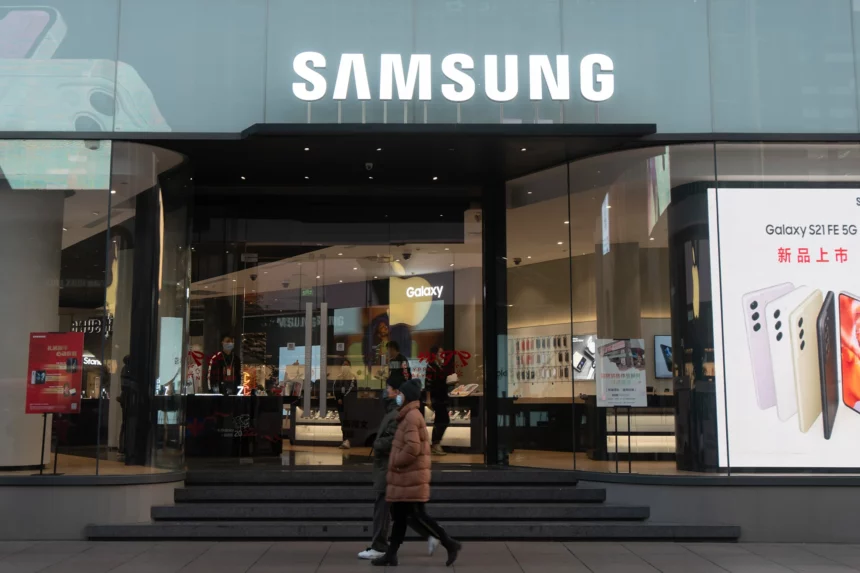In 2022, Samsung made headlines again, but this time for all the wrong reasons. The company has been hit with a class action lawsuit over its delayed data breach disclosure in late July of 2022. The lawsuit, filed by plaintiff Shelby Harmer and other affected customers, alleges that the company failed to notify consumers about the breach promptly.
The Breach and Its Aftermath
The data breach occurred when an unauthorized third party accessed Samsung’s US-based systems, stealing personally identifiable information about some Samsung customers. According to reports, more than 3,000 customers were affected, with information accessed including the full name, contact information, demographic information, date of birth, and product registration information.
Despite discovering the breach during an internal investigation on August 4, 2022, Samsung failed to notify affected customers or publicly disclose the breach until September 2, 2022, which is the crux of the lawsuit. The class action lawsuit alleges that Samsung failed to follow its policies and industry security standards to protect its customers’ private information.
Samsung’s Response
In its public notice regarding the data breach, Samsung said it had communicated directly with affected customers, at least those it could identify. The company still identifies more customers whose personal information may have been compromised in the breach. Samsung encourages customers to remain cautious of unsolicited communications asking for personal information and avoid clicking links or downloading attachments from suspicious emails.
To address the breach, Samsung has taken action to secure the affected systems. The company’s internal security team worked with a leading outside cybersecurity firm to strengthen its security measures. Samsung also coordinated the matter with law enforcement to investigate the breach.
Legal and Ethical Implications
This incident highlights the importance of timely disclosure of data breaches and the need for companies to take robust measures to protect their customers’ personal information. Failure to do so can have serious legal and ethical implications. Samsung’s delay in notifying affected customers about the breach has raised questions about the company’s commitment to its customer’s privacy and security.
According to an article by The Verge, “companies that don’t report data breaches in a timely fashion risk hefty fines, regulatory scrutiny, and legal consequences.” It remains to be seen what consequences Samsung will face as the lawsuit is ongoing.
Samsung’s delayed disclosure of the data breach has landed the company in hot water. While the company has taken steps to address the breach and secure its systems, its delayed response’s legal and ethical implications remain to be seen.
As technology evolves, companies must prioritize the security and privacy of their customers’ information. Failure to do so can result in significant legal and ethical consequences. The ongoing lawsuit against Samsung serves as a reminder of the importance of timely disclosure and robust security measures.
Samsung’s Data Breach in Comparison to Other Tech Companies’ Breaches
While Samsung’s data breach is significant, it is not the first data breach to occur in the tech industry. Other tech giants like Facebook and Google have also experienced major data breaches. In 2018, Facebook was involved in a data scandal where Cambridge Analytica gained access to data from millions of Facebook users. In 2020, Google faced a major data breach where hackers could access Google’s corporate network.
The Importance of Data Security and Its Impact on Consumer Trust
Data breaches can significantly impact a company’s reputation and consumer trust. When consumers entrust their personal information to a company, they expect that company to take the necessary steps to protect that information. When a data breach occurs, consumers may lose trust in the company’s ability to protect their personal information, which can have a lasting impact on its reputation.
According to a survey conducted by Norton LifeLock, “68% of consumers said they would stop doing business with a company that experienced a data breach.” This highlights the importance of data security and the need for companies to take it seriously. Companies prioritizing data security can build customer trust and enhance their reputation.
The Future of Data Security in the Tech Industry
As technology continues to evolve, the importance of data security will only increase. Companies must invest in robust security measures to protect their customers’ information. This may include encryption, multi-factor authentication, and regular security audits.
In addition to investing in security measures, companies must prioritize transparency and timely disclosure in case of a data breach. Companies that are open and honest about data breaches and take swift action to address them can build trust with their customers and maintain their reputation.
In conclusion, Samsung’s data breach serves as a reminder of the importance of data security in the tech industry. Companies prioritizing data security and transparency can build trust with their customers and maintain their reputation, while those that fail may face legal and ethical consequences. As technology continues to evolve, companies must invest in robust security measures to protect their customers’ personal information and ensure the future of data security in the tech industry.








